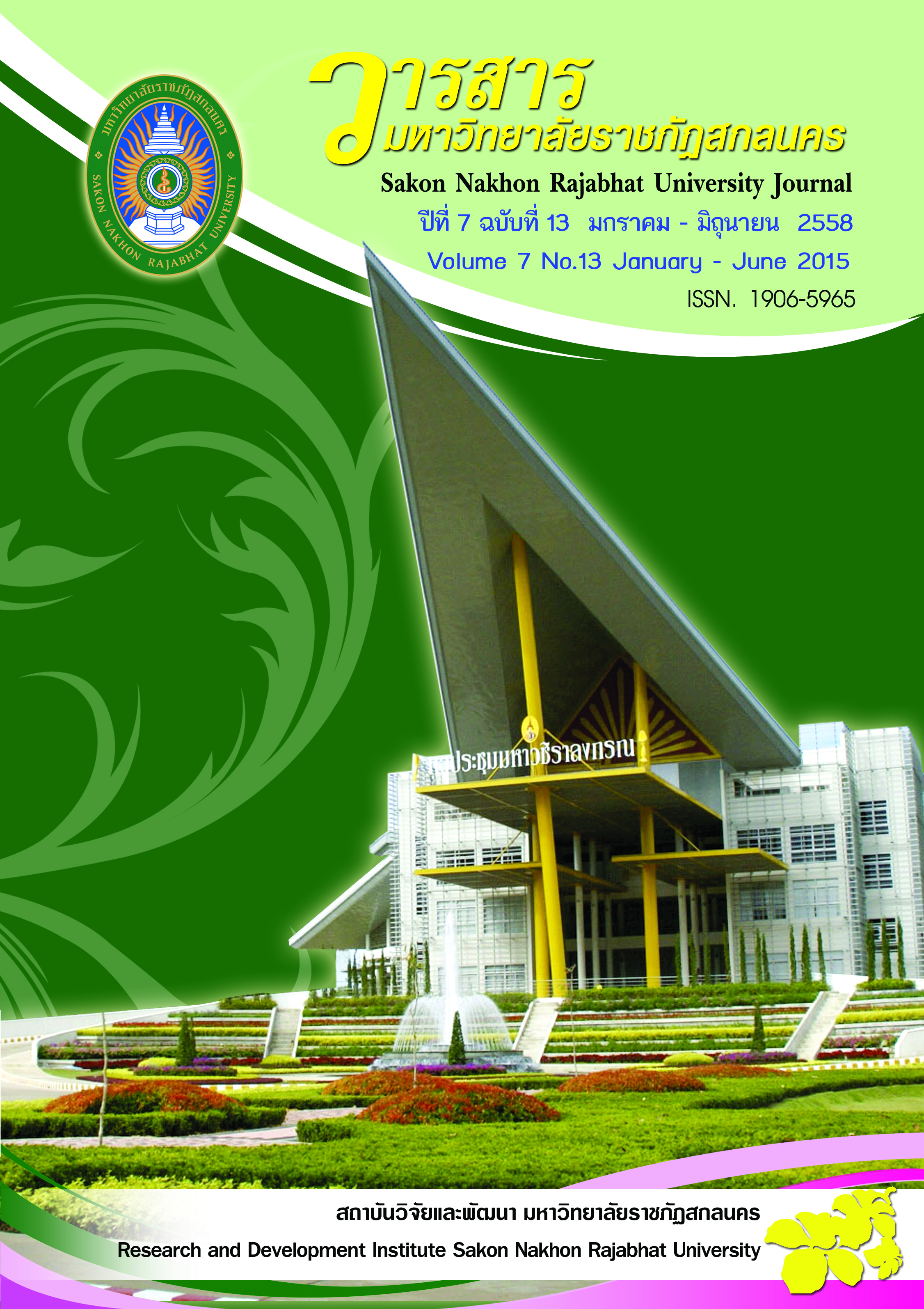การนำนโยบายการบริหารจัดการท่องเที่ยวอย่างยั่งยืนไปบริหาร ศึกษาเฉพาะกรณี บ้านท่าล้ง อำเภอโขงเจียม จังหวัดอุบลราชธานี
Keywords:
การท่องเที่ยวอย่างยั่งยืน, ภูมิปัญญาท้องถิ่น, การเปลี่ยนแปลงวิถีชีวิตชุมชน, การอนุรักษ์วัฒนธรรมชนเผ่าบรูAbstract
บทคัดย่อ
การนำนโยบายการบริหารจัดการท่องเที่ยวอย่างยั่งยืนไปใช้กับชนเผ่าบรูท่าล้ง อ.โขงเจียม จ.อุบลราชธานี พบว่า มีปัจจัยที่ส่งผลกระทบต่อความสำเร็จหลายประการได้แก่ (1) หน่วยงานที่นำนโยบายด้านการท่องเที่ยวของรัฐไปบริหารมีการกำหนดเป้าหมายหลายวัตถุประสงค์ ทำให้มีความขัดแย้งกัน เช่น นโยบายในการประเมินโฮมสเตย์ให้ได้มาตรฐานโฮมสเตย์ตามที่รัฐกำหนดไว้ส่งผลกระทบต่อความเป็นอัตลักษณ์ของชนเผ่าบรูในเรื่องการนับถือผี ซึ่งตามธรรมเนียมวัฒนธรรมของชนเผ่าบรูนั้น หากผู้นำนโยบายดังกล่าวไปบริหารมีความเข้าใจและเห็นคุณค่าในการอนุรักษ์วัฒนธรรมดั้งเดิมให้คู่ขนานกันไปเพื่อไม่ให้วัฒนธรรมถูกลบเลือนหายไป เป็นสิ่งดึงดูดให้นักท่องเที่ยวอยากเข้าไปสัมผัส เห็นความแปลกที่ไม่เหมือนใครด้านวัฒนธรรมชนเผ่า (2) ด้านวิถีชีวิตชุมชนซึ่งอยู่ริมน้ำ จับปลาในแม่น้ำโขงเพื่อเป็นอาหารของชุมชน ได้เปลี่ยนไปเป็นการจับปลาเพื่อขายให้กับพ่อค้าคนกลางที่เข้ามารับซื้อถึงบ้านเพื่อนำไปขายในตัวอำเภอโขงเจียม (3) ภูมิปัญญาด้านการจักสาน โดยเฉพาะอย่างยิ่งการจักสานกระติบข้าว หากเยาวชนรุ่นหลังไม่สืบทอดภูมิปัญญาดั้งเดิมไว้ในรูปแบบต่างๆ อาทิ การบรรจุภูมิปัญญาดังกล่าวไว้ในหลักสูตรท้องถิ่นก็จะทำให้ภูมิปัญญาด้านจักสานสูญหายไป (4) ปัญหาการเคลื่อนย้ายแรงงานเข้าสู่กรุงเทพมหานคร ทำให้ขาดการสานต่อภูมิปัญญาดั้งเดิมของท้องถิ่น (5) วัฒนธรรมที่ยังคงอยู่คือด้านภาษาเพราะยังมีการพูดภาษาบรูในหมู่บ้าน ซึ่งนับว่าเป็นเสน่ห์ดึงดูดให้กับนักท่องเที่ยวได้เข้าไปในพื้นที่
คำสำคัญ: การท่องเที่ยวอย่างยั่งยืน, ภูมิปัญญาท้องถิ่น,การเปลี่ยนแปลงวิถีชีวิตชุมชน,การอนุรักษ์วัฒนธรรมชนเผ่าบรู
Abstract
The implementation of sustainable tourism management policy in Bru tribe in Thalonk Community, Khongjiam District, Ubon Rajathani Province found that there were several factors affecting its success , which were (1) bureaucratic sectors implementing the government's tourism policies had too many targets to achieve which resulted in policy contradiction. For instance, the policy concerning homestay business appraisal to meet the government's standard affected the identity of Bru tribe, who believed in animism. If those who implemented tourism policies understood and saw the significance in conserving Bru traditions while executing such policies, these traditions would attract tourists to learn more about Bru tribal traditions; (2) there was a chance in the riverside community's way of life. From small fishery along Khong River for household consumption in the past, now the fishery has become increasingly commercial. Fish were sold to middlemen, who once again sold the goods in the center of Khongjiam District; (3) Basketry knowledge, especially rice wicker basket, had continually received lesser attention. If such knowledge had not been conserved by the next generations, basketry knowledge might be lost for good; (4) labor migration to Bangkok resulted in the lack of people who would carry on the practice of local wisdom; (5) The remaining culture was the language since there was still the use of Bru dialect in the community. This was one of the charms that attracted tourists to visit the area.
Keywords : Sustainable Tourism, Local Wisdom, Change in the Community Way of Life, Bru Tribal Culture Conservation









